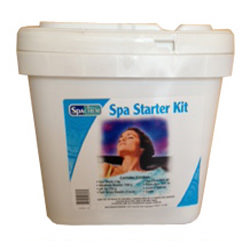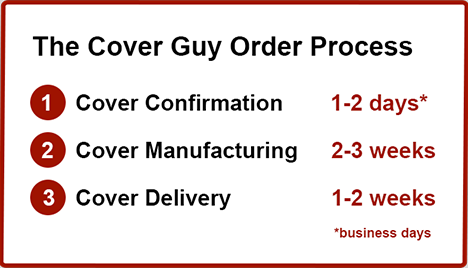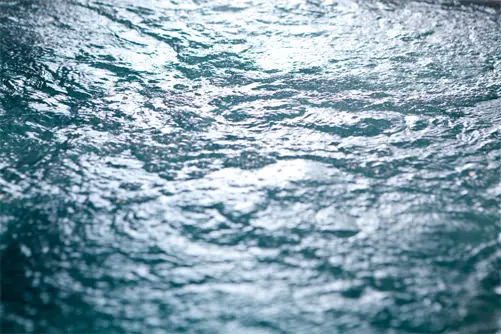If you’re a hot tub owner, you’re probably aware of the numerous tips, treatments, tests, and chemicals available to help you keep your hot tub clean and well maintained. With all of that information out there, keeping your hot tub clean can become a bit confusing. In fact, there should probably be a class labeled “Hot Tub Chemistry” at your local university! Keeping your hot tub clean and worry free doesn’t have to require a degree in chemical engineering, however. By following these few simple tips, you can be relaxing in your nice clean hot tub in no time.
Hot Tub Chemicals: What you should know
There are a number of hot tub chemicals on the market that are specifically designed to keep your hot tub clean and running smoothly. Before you begin treating your hot tub water with chemicals it’s a good idea to check the pH/ Alkalinity levels first, and make sure your water is at a balanced level. Here is a basic run down of the chemicals and what they do.
Sanitizers: Sanitizers are chemicals that are designed to kill the bacteria that commonly grow in warmer water. Some common sanitizers include:
- Chlorine: Dichlor is a balanced form of chlorine that is highly recommended for sanitizing hot tubs. It can be used initially as a “shock”, or continuously as a maintenance chemical. Trichlor, a chemical commonly used in swimming pools, is not recommended for use in your hot tub, however. It becomes highly corrosive in warm water, and can damage your spa.
- Bromine: Many people use bromine in place of chlorine because it produces less odor than chlorine, and it can be used in a range of PH levels. Bromine is typically dispersed with a floating feeder or cartridge.
- Biguanide: Biguanide products kill bacteria by attacking the wall of the cell. They put off less odor than chlorine and bromine, but are not compatible with Enzyme systems.
- Salt Water Sanitizer System: Many people use salt to sanitize their hot tubs. With a salt water system, the salt is converted into a natural chlorine. Some more elaborate systems can produce other sanitizers as well, however. People who are sensitive to commercial chemicals may benefit significantly from the use of a salt water system.
Supplemental Products and Systems:
- Enzymes: Enzymes are bio-catalyzers, and work in conjunction with other chemicals and systems to increase their efficiency. They dissolve contaminants, soften your water, and keep mineral build-up at bay.
- Ozone: Ozone is not a sanitizer, but instead an oxidizer that is compatible with chlorine, bromine, biguanide, and other sanitation systems. It is used to minimize the amount of chemicals required to clean your hot tub. If you choose to use Ozone, an “ozonator” is required.
- Ionizers: There are two types of ionizers available: Passive and Active. Passive ionizers (mineral sanitizers) come in cartridges that are placed inside your floating device or filter to distribute the minerals into the water slowly. Active ionizers are installed as part of the circulation system of your spa. There are electric copper and silver ionizers. While the use of ionizers is effective in killing bacteria, they are not designed to be used alone and will not sufficiently sanitize your water.
Additional Information:
Although you have made use of the various hot tub chemicals that are available to sanitize your hot tub, there are a few additional steps you can take to ensure that your water is less cloudy and odor free. Look for products that eliminate oils, harden soft water, clarify water, and remove foam to complete your cleaning regimen.
If you are looking for hot tub chemicals to keep your hot tub clean and running smooth visit www.thecoverguy.com.



